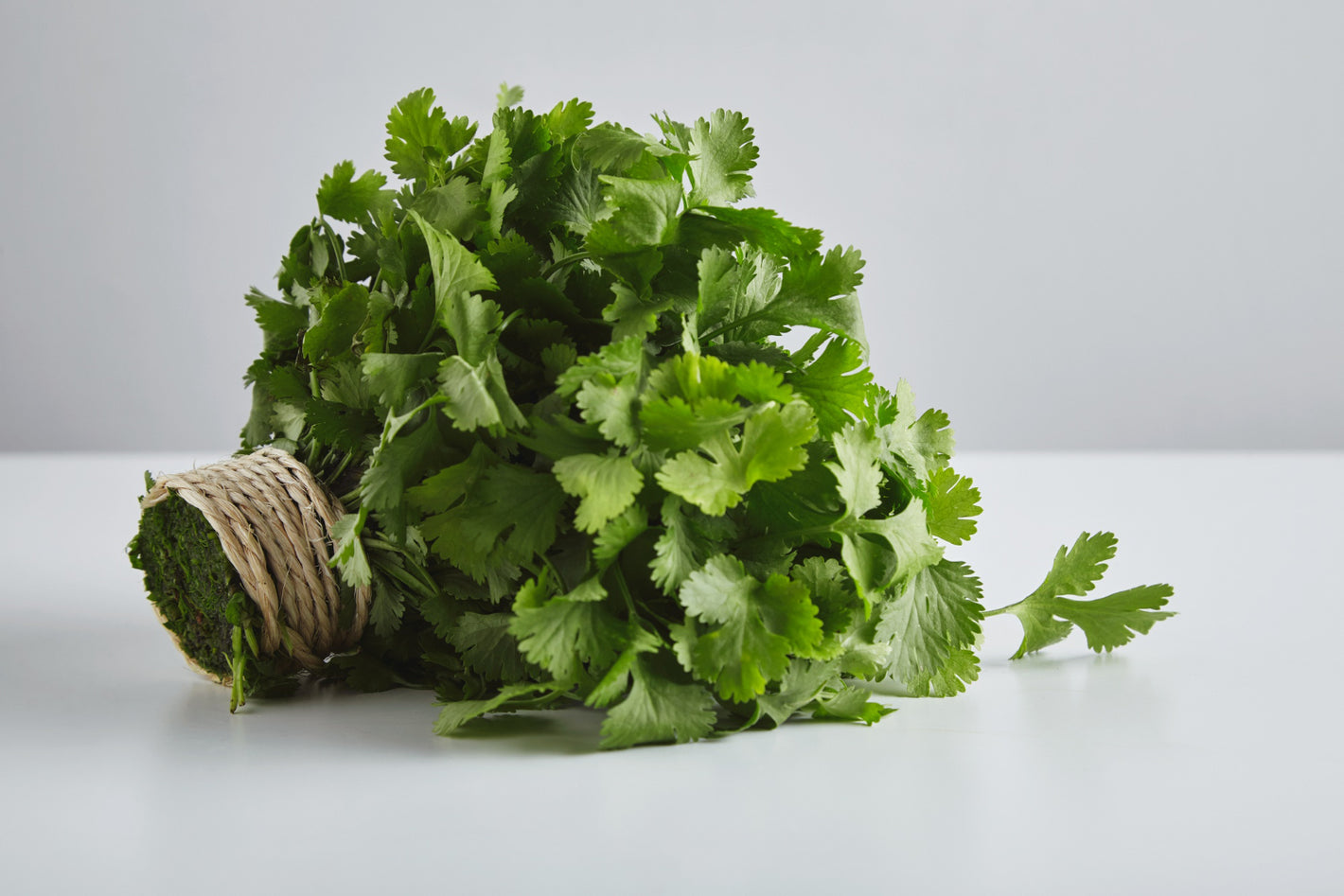Coriander
An annual herb belonging to the Apiaceae family, coriander is also referred to as cilantro or Chinese parsley. Although the entire plant can be eaten, the fresh leaves and dried seeds are the ones that are most frequently used in recipes. Southern Europe, northern Africa, and southwestern Asia are all places where coriander is indigenous. It is a soft plant that reaches a height of 50 cm (20 in). Variable in shape, the leaves are broadly lobed at the plant's base and slender and feathery higher up on the stems that bear the flowers. The flowers are borne in tiny umbels that are asymmetrical, white or very pale pink, and have longer petals pointing away from the umbel's center than those pointing toward it (which are only 1-3 mm or 006-012 in long). The fruit is a dry, globular schizocarp with a diameter of 3-5 mm (0.12-0.20 in).

